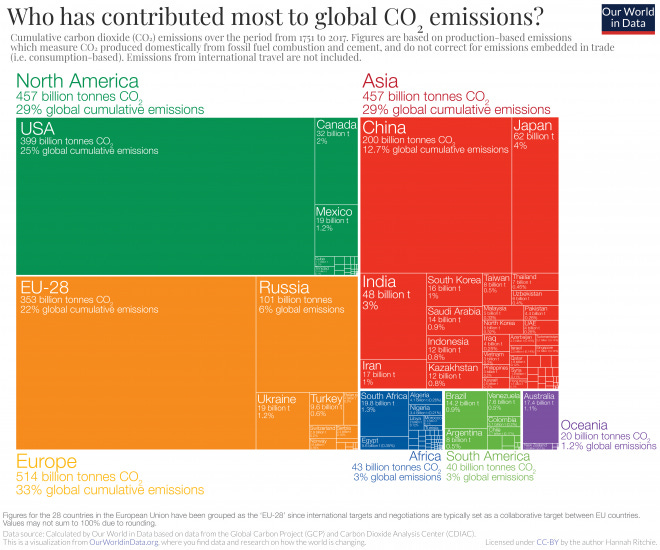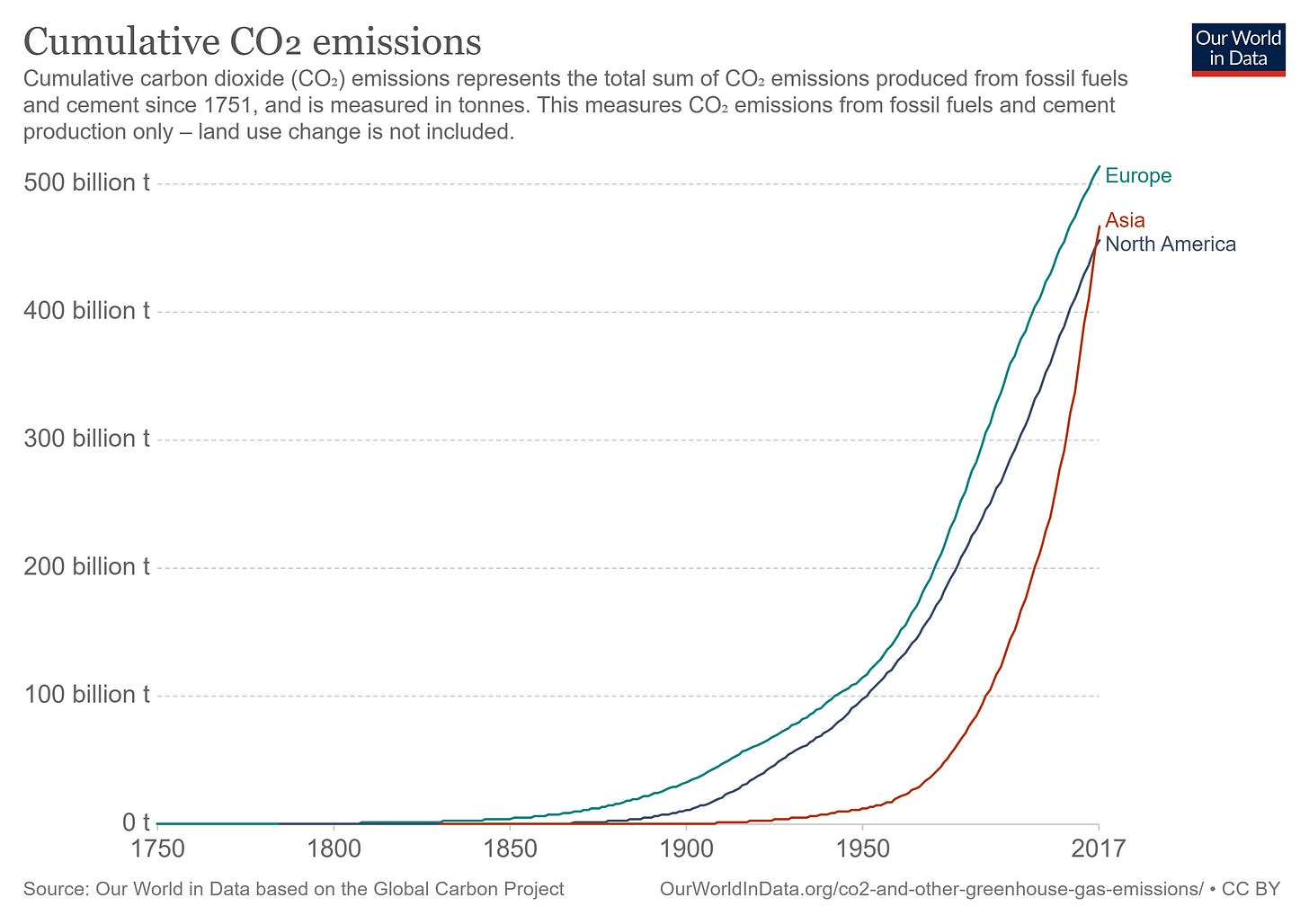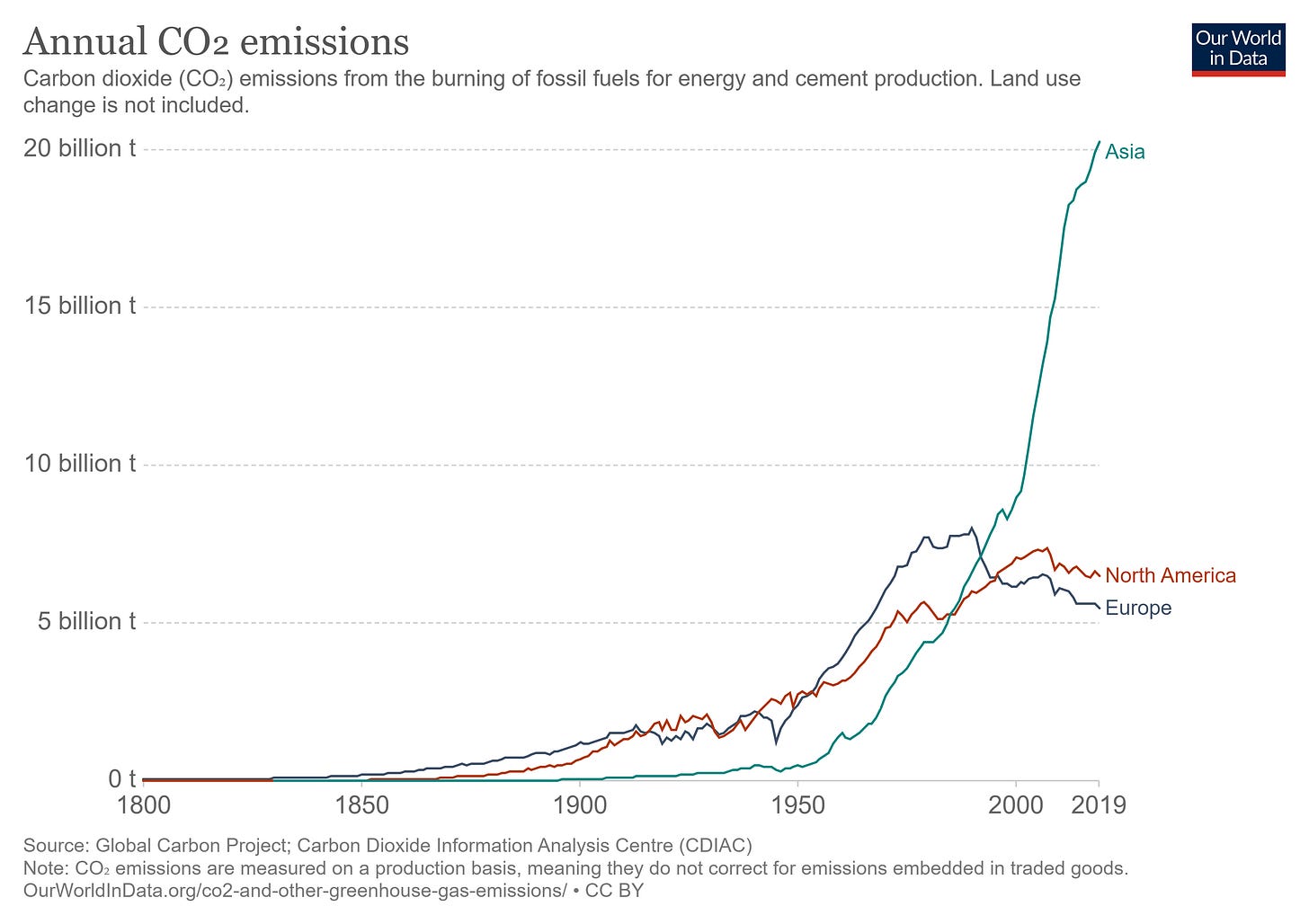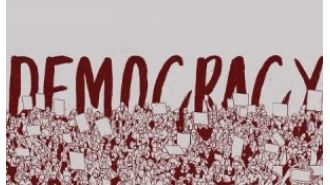Noahpinion on carbon removal
Four years ago, I spent a few months learning about the climate crisis. I shared a few posts about what I was learning and a synthesis of possible approaches to solve the problem.
Every time I did so, I’d invariably have someone ask the question – “But, what about China? Aren’t they making this problem significantly worse?” Or it would be – “What about the coal powered electricity in India?”
There was definitely a perception of unfairness. It is understandable.
Noah Smith, a writer who shares notes on Economics on Noahpinion, articulated the response I would have loved to share in his post – “Carbon removal is how we make climate change fair.”
Climate change is not fair.
In fact, it is one of the most insanely unfair things that has ever happened. For many decades, industrialized nations — Europe, the U.S, Japan, and a few others — belched carbon dioxide willy-nilly into the atmosphere as they pursued their programs of economic development (and war).

Indeed, only recently did all of Asia — a region of 4.5 billion people — catching up to North America, a region with one-ninth its population, in terms of total cumulative CO2 emissions.

That wasn’t fair. But here’s where it gets grossly, ridiculously unjust. Developing countries now out-emit developed ones by a huge margin. Compare annual emissions for Asia, North America, and Europe:

China alone emits almost twice as much carbon as the United States (and no, it isn’t because the U.S. outsourced its emissions). Every year the disparity increases. India is catching up. Other developing countries are seeing rapid increases as well.
This means that the burden of reducing greenhouse emissions must, mathematically, fall mostly on developing countries like China, India, and the countries of Southeast Asia. This is not a moral judgement. It is not a political judgement. It is merely physics and arithmetic. The climate does not care about per capita emissions. And historical emissions are already over and done. Which means that if we want to stop pumping carbon into the air and destroying the planet, developing countries are going to have to make the biggest changes.
It’s a burden they don’t deserve. Conversations with people from China or India about the necessity of developing-country emissions reductions can get quite tortured. It’s a painful and shameful thing for a rich-country person such as myself to tell a person from a poor, rapidly industrializing country that they’re going to have to pay for my ancestors’ irresponsible lifestyles. It is a fact that understandably tends to make people from those countries angry and indignant. And yet it is a fact. There is simply no other way the planet will be saved.
Of course, there are things rich countries can do to ease that burden. One thing, which to our credit we have done, is to push down the price of green energy technologies — solar, wind, batteries, and so on — until developing countries can industrialize using these technologies instead of fossil fuels and save money in the process. These cost drops are why India is canceling coal plants at breakneck speed (though China, sadly, is still building more coal).
Still, not every piece of the transition to zero carbon will be costlessly solved by magical inventions. Steel, cement, and various other industrial processes will be costly to replace, as will current systems of agriculture. Developing countries will have to pay those costs, unless rich countries agree to heavily subsidize their transitions with cash payments (which seems politically difficult and complex). So while cheap green energy will ameliorate the unfairness of the climate fight, it will not eliminate it.
And this brings me to the topic of carbon removal.
More in his post.
If you do read the rest of the post, it is important to note here Noah is a techno-optimist and believes that we’ll be able to bring down the price of Carbon capture. While that is not an unreasonable assumption, it is definitely not guaranteed. But, that doesn’t change the fact that it is a critical avenue for us to pursue.






